Gurazeni – 08
Gurazeni’s systematic dissection of Japanese pro baseball continues with a twist this week. NPB’s allocation system for foreign players is something quite foreign (pun intended) to fans of American baseball, but well known to those of us that follow the Japanese game. Still, we tend to think about it from the perspective of fans – there are only so many foreigners on the field any given team, any given day. But looked at from the perspective of those players, it’s rather taihen.
As is so often the case with anime, there’s something a bit condescending and borderline bigoted in the depiction of “Thomas Hotpopper” (right down to the name). The character design, the exaggerated accent, the inability to navigate the train system, the brawn vs. brains approach to pitching. It is what it is – I’ve learned to live with it at this point unless it’s something really egregious like the ANA commercial or Uchuu Kyoudai. If you can get past that, this is yet another interesting depiction of a very specific slice of the baseball business by Gurazeni.
Thomas is what we call a “4-A” player in the States – a guy who shuttles between the AAA team and the show for an extended period, either because he simply lacks the ability to stick or has options remaining. In Japan there’s another factor – the complicated allocation system for foreign players. A team may only have 4 foreigners on the active roster, and at least one must be a pitcher and one a hitter at all times. Since the Spiders have four gaikokoujin they rely on, there’s no room for Thomas most of the time – and the fact that he’s a hothead who loses his concentration (and temper) on the mound doesn’t help. Bonda tries his best to assist, but you know – Thomas is a foreigner and none too bright.
A couple of interesting sidebar notes here: first, the idea of “the courage to throw balls”. That is indeed much more indicative of the Japanese approach to pitching than the American. Also, I love the fact that Bonda is frugal in all things – he bikes to work (even when the team is playing at the Tokyo Dome rather than Jingu Stadium) and commutes by train to Yokohama games, because it’s cheaper, and because he’s anonymous enough not to be recognized on the train.
Gegege no Kitarou (2018) – 09
Gegege no Kitarou continues its winning streak with yet another very strong episode. Notably, I think this was the funniest of the run so far – loaded with arch social commentary (as Mizuki’s works often are) and sight gags. What’s really impressive here is the way this version is grounding itself solidly in Mizuki’s ideas – even to the point of using original stories from the manga – but updating them to reflect the modern world and its peculiarities.
Of all the Japanese youkai, perhaps none is better-known than the kappa – and there’s an odd sort of love-hate relationship between humans and these creatures. With apologies to Koo, for the vast majority of time Japanese mythology has been around kappa have been mostly creatures of fear – drowning victims in rivers and then removing their shirikodama (the whole story behind that is rather graphic and gross). In this instance, they’re pawns in a scheme by Nezumi-otoko (where the word scheme comes in with GGGnK, it’s always Ratman) to supply cheap labor to a greedy company president who’s neglecting his family and driving off his human workers. Nezumi meets the fellow as a result of another scheme – taking out an online ad promoting the youkai mailbox (one of the resultant requests blames youkai for post-urination dribbling).
There’s so much about this whole story that’s just spot-on. Start off with the fact that youkai Isogashii is basically out of a job, because modern humans are such workaholics that his possessing them has no impact. The kanji for isogashii really does mean “death of the heart” more or less, and situations like that are all too common in modern Japan (though awareness that this is a huge problem does at least seem to be growing). A pair of kappa brothers played by Sakaguchi Daisuke and Kumai Matoko are at the heart of the kappa side of the story. They’re friends of the Sand Witch, whose sand helps them grow delicious cucumbers – and thus known to Ratman, who lures them in with the possibility of many, many more cucumbers at their disposal.
The whole hell company sequence is biting and hilarious. The kappa start out working for 3 cucumbers an hour and using moisturizing gel on their plates, but eventually they negotiate a shower room (and cost Ratman his job as middlemen). Soon enough they get wind of the fact that they’re being exploited and attempt labor unrest, but when that fails they just steal the boss’s shirikodama and go on a rampage. That fate awaits Kitarou and most of his friends too, which is where Isogashii turns out to be useful after all. It’s all quite funny, but in a very pointed way. That applies to the ending, too, where the kaichou decides to abandon the money chase and take his family to the country – with disastrous results. Indeed, Kitarou – it ain’t easy being a human.


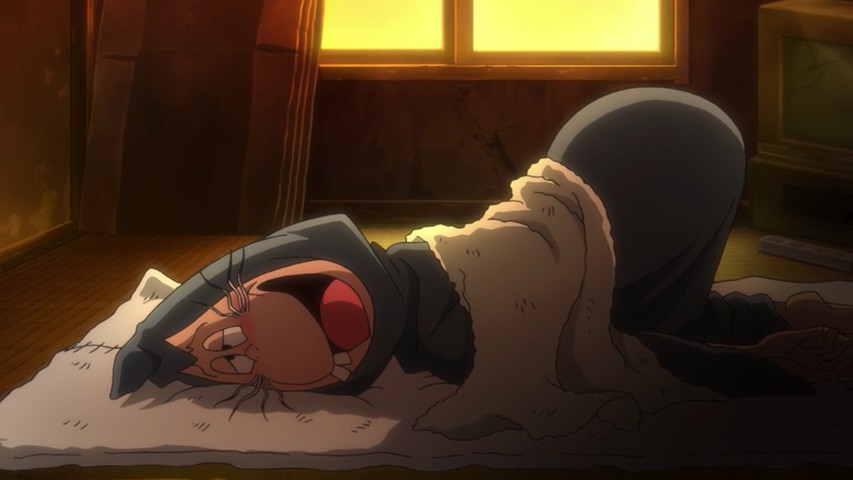

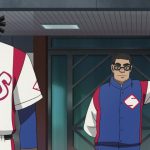


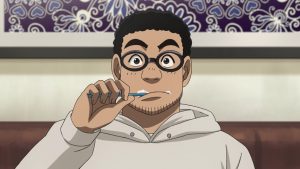
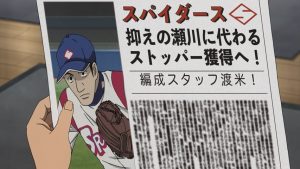
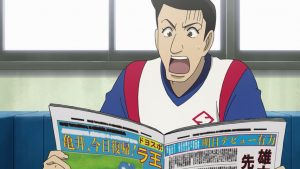
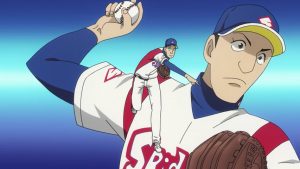
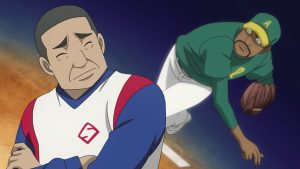

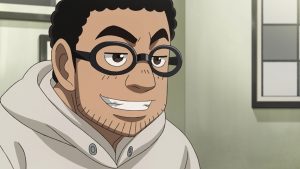
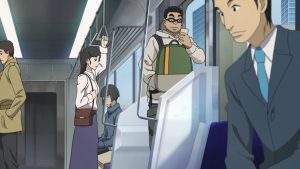
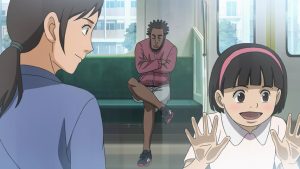
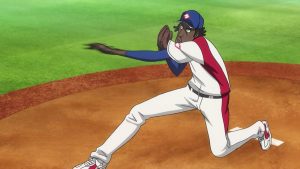
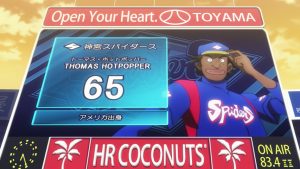
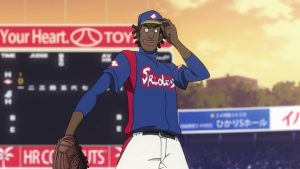
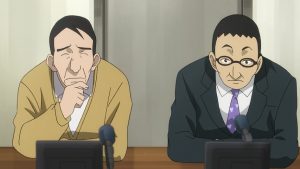
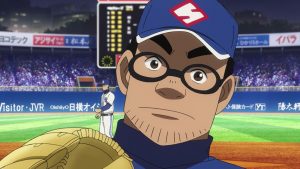
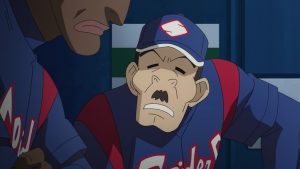
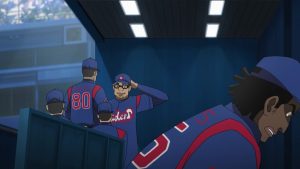
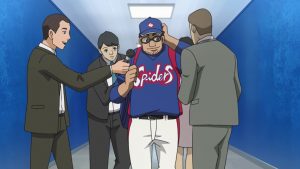

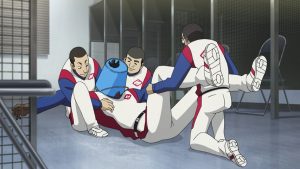
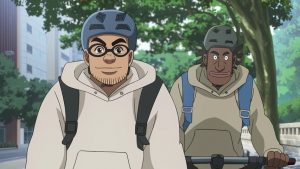
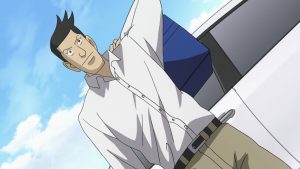
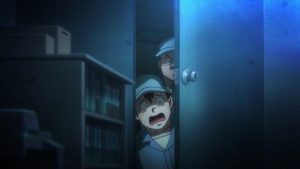
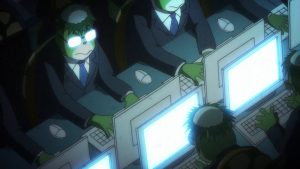
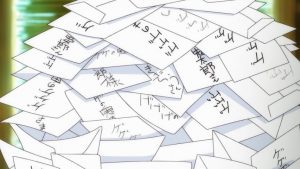


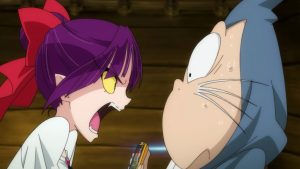
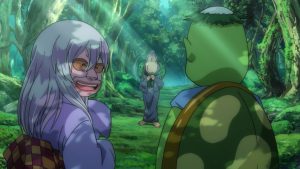

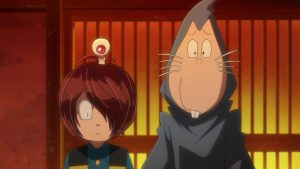

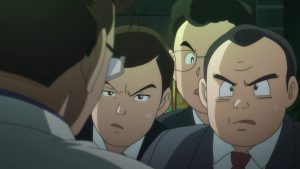
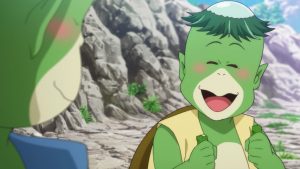
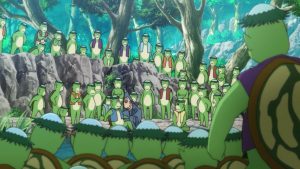
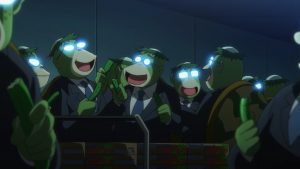
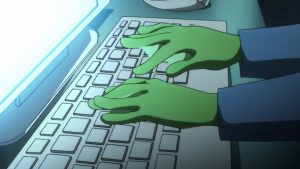
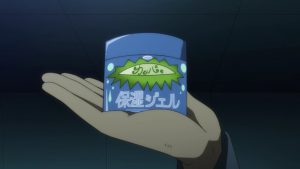
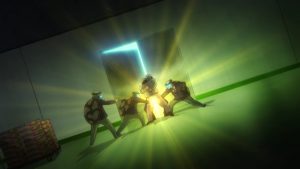
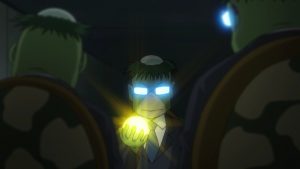

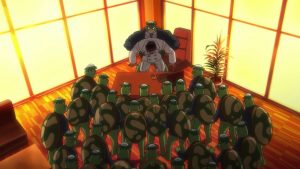
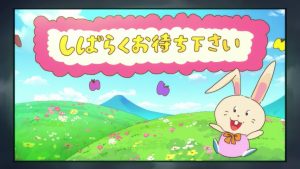
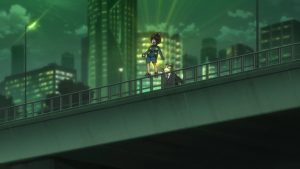
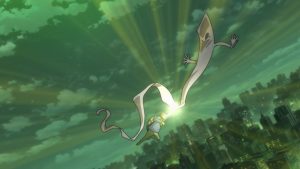
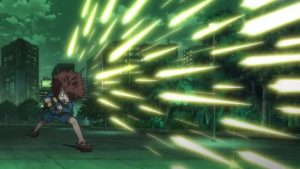

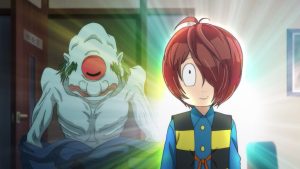
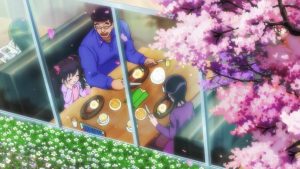


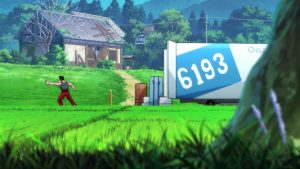
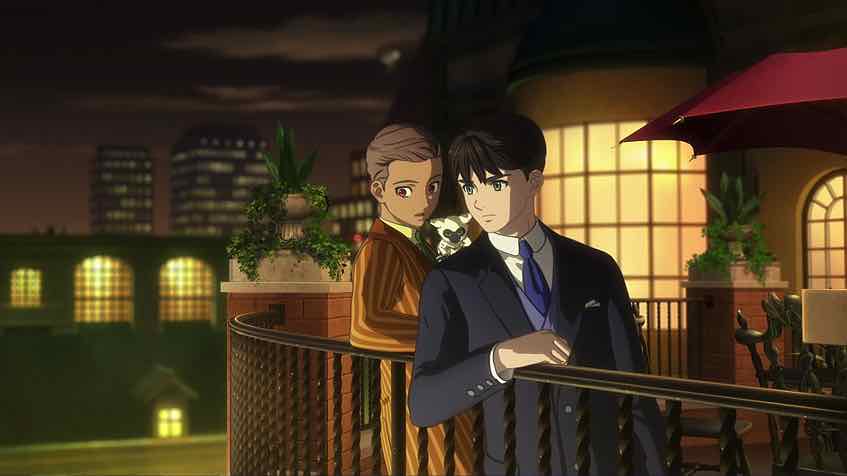
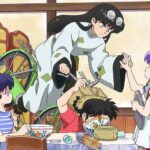
sonicsenryaku
May 27, 2018 at 7:41 amIf karl marx saw this episode of GGGnK he’d just nod his head in dismay and say: “see, I told you so.”
Guardian Enzo
May 27, 2018 at 2:29 pmUntil the last 30 seconds…
sonicsenryaku
May 27, 2018 at 4:26 pmhahaha yuuup!!
Yann
July 18, 2018 at 8:57 amI just finished a multi week project with a super tight deadline at work yesterday and woke up feeling too sick to get out of bed. Decided to catch up on GGGnK and watched this episode in bed… Ha!